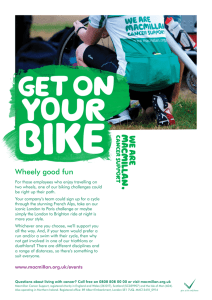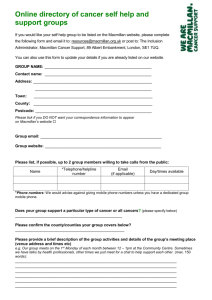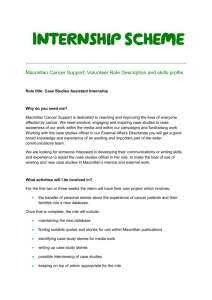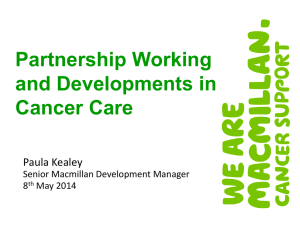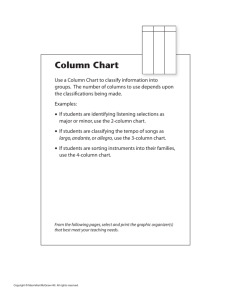Effects of chemotherapy on everyday life
advertisement
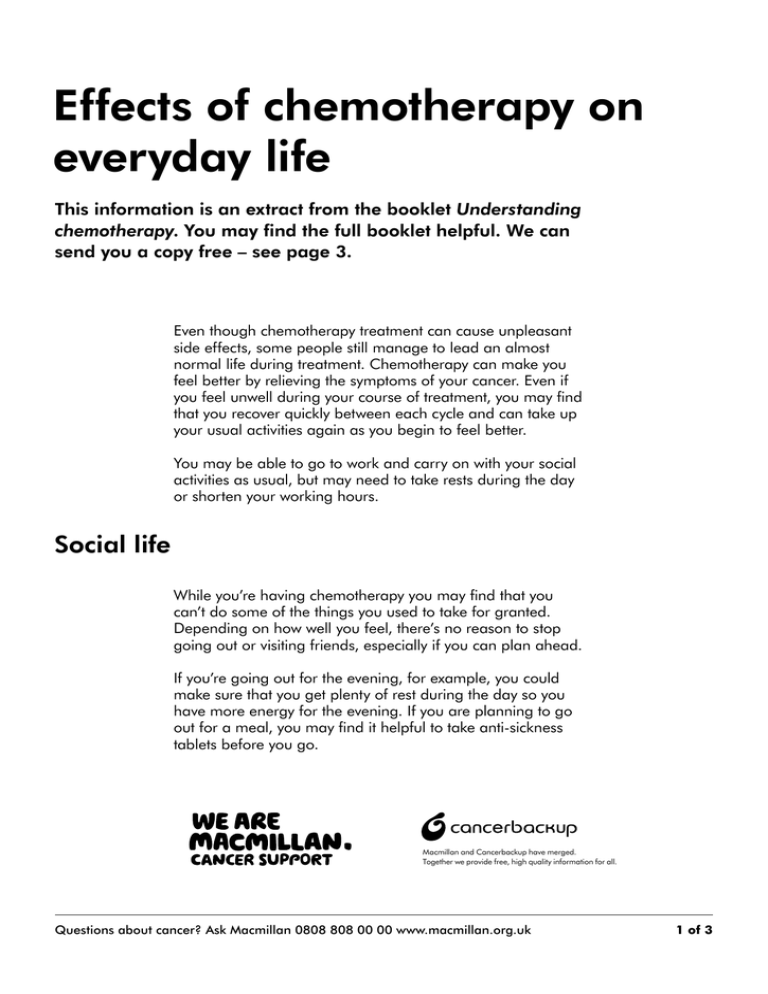
Effects of chemotherapy on everyday life This information is an extract from the booklet Understanding chemotherapy. You may find the full booklet helpful. We can send you a copy free – see page 3. Even though chemotherapy treatment can cause unpleasant side effects, some people still manage to lead an almost normal life during treatment. Chemotherapy can make you feel better by relieving the symptoms of your cancer. Even if you feel unwell during your course of treatment, you may find that you recover quickly between each cycle and can take up your usual activities again as you begin to feel better. You may be able to go to work and carry on with your social activities as usual, but may need to take rests during the day or shorten your working hours. Social life While you’re having chemotherapy you may find that you can’t do some of the things you used to take for granted. Depending on how well you feel, there’s no reason to stop going out or visiting friends, especially if you can plan ahead. If you’re going out for the evening, for example, you could make sure that you get plenty of rest during the day so you have more energy for the evening. If you are planning to go out for a meal, you may find it helpful to take anti-sickness tablets before you go. Macmillan and Cancerbackup have merged. Together we provide free, high quality information for all. Questions about cancer? Ask Macmillan 0808 808 00 00 www.macmillan.org.uk 1 of 3 Effects of chemotherapy on everyday life If you have an important social event (such as a wedding) coming up, ask your doctor whether the time of your treatment can be changed so that you can feel as well as possible for the occasion. Alcohol For most people, having the occasional alcoholic drink will not affect the chemotherapy treatment, but it’s best to check with your doctor beforehand. Holidays and vaccinations If you are going abroad on holiday, it’s important to remember that you should not have any ‘live’ vaccines while you’re having chemotherapy. These include: • MMR (the triple vaccine for measles, mumps and rubella) • BCG (tuberculosis) • yellow fever • oral typhoid. There are some vaccines that you can have if necessary. If you’re travelling abroad, ask your doctor if you need any vaccines and whether it’s safe for you to have them. Sometimes people who have, or have had, cancer can find it difficult to get travel insurance. We have a list of companies that may offer travel insurance for people with cancer. Our booklet Travel and cancer has helpful tips on many travel issues. Page 2 of 3 Questions about cancer? Ask Macmillan 0808 808 00 00 www.macmillan.org.uk Effects of chemotherapy on everyday life More information and support If you have any questions about cancer, ask Macmillan. If you need support, ask Macmillan. Or if you just want someone to talk to, ask Macmillan. Our cancer support specialists are here for everyone living with cancer, whatever you need. Call free on 0808 808 00 00, Monday–Friday, 9am–8pm www.macmillan.org.uk We make every effort to ensure that the information we provide is accurate but it should not be relied upon to reflect the current state of medical research, which is constantly changing. If you are concerned about your health, you should consult your doctor. Macmillan cannot accept liability for any loss or damage resulting from any inaccuracy in this information or third party information such as information on websites to which we link. © Macmillan Cancer Support 2010. Registered charity in England and Wales (261017), Scotland (SC039907) and the Isle of Man (604). Registered office 89 Albert Embankment, London, SE1 7UQ REVISED IN JUNE 2010 Questions about cancer? Ask Macmillan 0808 808 00 00 www.macmillan.org.uk Page 3 of 3
